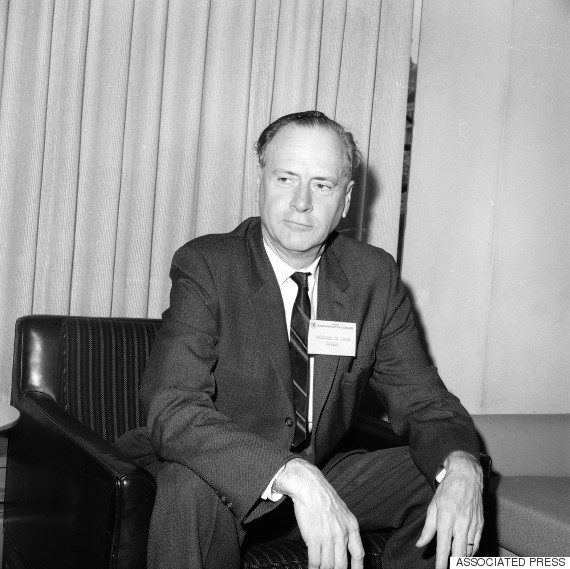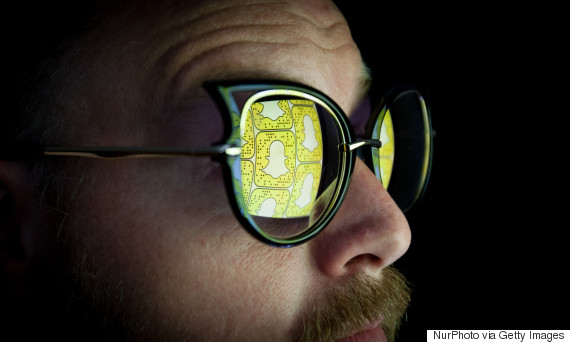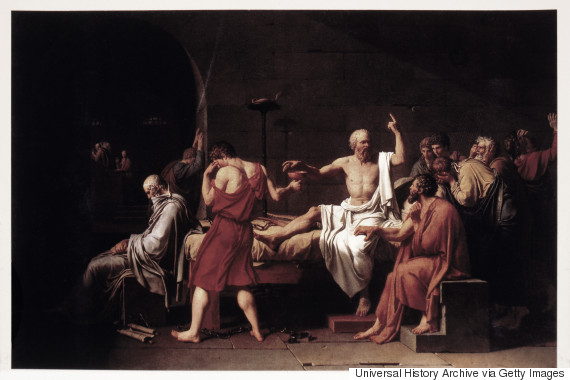
The Canadian philosopher Marshall McLuhan once said that "the medium is the message." When he said that, he wasn't writing an insightful tweet or witty aphorism; he was suggesting that the medium an artist chooses is as important as the message itself. In fact, he suggests that a message is so distinct to its medium that it cannot be conveyed in another medium without some essential change to it.
This is something that ancient philosophers understood and grappled with and what 20th century philosophers like Walter J. Ong built their careers upon. What these philosophers sought to understand was how the dominant medium of an age defined that age. This proposition has major implications for a world that is dominated by social media. Centuries ago, Plato lamented the death of oral traditions and cultures by the hand of writing because the spoken word is a personal medium that lacks the written word's sense of commodity and permanence. Perhaps those very virtues associated with oral traditions -- like unfiltered transience -- have become realities in the newest medium, the online social world. All of which begs the question, are your Facebook friends Platonic?
At the end of the Phaedrus, Plato puts a fable in Socrates' mouth about the invention of writing. Much of the dialogue until that point focuses on writing itself, what it means to communicate and how to communicate effectively. The short version of Socrates' fable goes like this: Thamus, an Egyptian king, invents writing. Thamus takes his invention (writing) to show the god Theuth how wonderful it is. Theuth replies that writing isn't an invention that fosters knowledge but that, rather, it makes people forget. Writing, according to Plato, isn't the source of knowledge but only the appearance of it.

Plato suggests that as humans moved away from oral traditions to written ones, something important was irrevocably lost. Until writing was invented, memory was all people had for what we call storage today. Someone actually had to remember all 12,000 lines of the Odyssey. For centuries after Homer, the Odyssey and other epic poems in the cycle (there were several) were memorized because alphabetic writing didn't yet exist. It has been theorized, and substantiated, that these oral recitations often varied and were not standardized like they are today.
For a number of good reasons, we no longer have to memorize the Odyssey. Most importantly, we have books. Books are wonderful. They hold information for us and never forget like humans do. However, Plato thought that the capacity to remember was lost to books and that was an irreversible mistake. First, there are many millions of unique books. More than a person could ever read in a lifetime. And second, reading a book isn't quite like speaking to its author. A person can be argued with and sometimes even reasoned with. A book, on the other hand, is dogmatic and static in a way that a dialogue is not.
Writing, according to Plato, isn't the source of knowledge but only the appearance of it.
Plato isn't the only philosopher to bemoan the fate of oral traditions. Ong wrote his seminal work, Orality and Literacy, on how written cultures had displaced oral ones. In fact, according to Ong, written works were privileged at the expense of oral ones by the academies. This is because academies and written works serve the same purpose. They are the formalization of their respective antecedents. This formalization has a tremendous potential. Writing makes it possible to extensively study an idea that was previously restricted by the limits of a voice. According to Ong, writing makes abstract thought possible on a level not possible in a purely oral culture. In an oral culture, abstraction is extraordinarily difficult because words and definitions are dynamic rather than static. Writing has the permanence and practicality that makes abstraction possible. And as stories and ideas were set in stone, the permanence of writing also created the concept of orthodoxy.
According to Ong, oral cultures "live very much in a present which keeps itself in equilibrium." There is no way to speak in the past or future. On the other hand, books are written for a future audience and have no immediacy. The invention of writing and subsequently print make it possible to transmit your message over time and distance but, as a consequence, loses the immediacy of the spoken word. Books can be read in another country and they can even be read long after the author has died. Oral communications depend on time and space but writing is detached from it. Writing's independence from time and space was so revolutionary that it drastically changed the nature of ideas.
What does any of this have to do with you and your Facebook friends? The answer is more than you'd think. Social media isn't a new fad -- it's a whole new way to communicate. It synthesizes components of oral and written traditions. It is instant and unfiltered. It is independent of both time and space. And, regardless of your personal opinion of social media, it is necessary to admit that it has had a tremendous impact on the world. For one, it has increased the amount of information that billions of people consume and create. For another, it has decreased the amount of time we spend consuming and creating. However, if we have finite capacities and we reach a place where the amount of information we consume every day exceeds the amount that we can remember, then do we cease to comprehend it? If there is nothing to comprehend in a message, is there any message at all?

Let's take a step back. At one point, a quantitative change equaled a qualitative one. When print made it possible to reproduce books cheaply, it completely changed how ideas were learned and conveyed. Therefore, at one point, the amount of information changes the nature of ideas. In fact, if we are not comprehending the information that we consume then the more information there is, the less comprehension there is. This is another way of saying that more information does not equal more knowledge. If it did, then an individual who knows how to Google would be considered to know everything. Or, an individual who re-posts an article would be considered to have written that article. Sharing is not creating; access to information is not predicated on understanding that information. If, as Ong said about the written word, "It separates the knower from the known," and we are able to share enormous swathes of information without comprehension, then social media has further separated the act of understanding from knowledge. Perhaps the medium has no message at all.
If print resulted in the business of words or in the commodification of words, and social media doesn't sell books or words or substance but still creates enormous revenue, then it is because social media is the commodification of people. As creators and consumers, the users are the product. For example, Facebook has about 1.7 billion active monthly users and generates an annual revenue of nearly $18 billion. Dividing that annual revenue into months and then by the number of unique visitors shows that a human equals less than a dollar for Facebook's advertisers and accountants.
This piece is not a polemic for neo-Luddism. Nor do I suggest that you memorize the Iliad. However, it is necessary to consider how social media has changed how we communicate. This piece, for example, was written and shared using technology. Or, as Ong wrote, "Once the word is technologized, there is no effective way to criticize what technology has done with it without the aid of the highest technology available." This is to say that, despite whatever negative effects the internet has had on our mental capacities, it is here to stay. That's how technology works -- it overwhelms its predecessors and replaces them. Plato evidently knew this too because, although he lamented the rise of writing over the spoken word, he wrote things down.
Sharing is not creating.
To be clear, I come to praise social media, not to bury it. I praise it for its capacities like instant connectivity and mass dissemination. Nothing in the history of humanity has had such a tremendous impact on public participation, public awareness and the exchange of information.
However, do these capacities come at a price? At the very least they come with a mass of content. That now ubiquitous word, content, represents how words and ideas are commodities. Content is branded, sold, sponsored, advertised and, finally, archived and forgotten. Everyone writes and shares and thereby adds to the already oversaturated world of information.
Online communities are made of groups of friends and similarly minded individuals but are not limited to people you know or even who you share interests with. These online communities refuse to find common ground, to cooperate. Some communities seek to villainize and ostracize others, some seek to exploit and commodify. Few seek to create meaningful conversation and share ideas in a rational and dialectical manner.

Like Athens's agora, the internet is made up of individuals who stand and deliver speeches and those who consume them. However, Plato's friends, ostensibly, were interested in truth and beauty and discussed these ideas at length. Their discussions were candid, guided by Socrates and aimed at the truth. Their interests were neither ephemeral or fiscal in subject. Their dialogues were progressive and constructive rather than reductive and destructive. In fact, those interlocutors who sought to destroy a dialogue through ad hominem attacks, false dichotomies and rhetorical tricks were uninterested in the same ends as Socrates and his friends, who dismissed them as sophists.
A medium can only convey a message that is intrinsic to it. Social media can only convey short-form information with immediacy. Any other substance is foreign to it. Philosophy, for example, could only have been developed through writing, since it is writing's nature to convey long-form analytic information. If philosophy had developed through social media it would be composed of anecdotes, quote cards and aphorisms. Therefore, social media is not Platonic but, as a vehicle for sharing, can be an instrument to disseminate information.
Few online communities seek to create meaningful conversation and share ideas in a rational and dialectical manner.
I would be remiss to leave the conversation here without any suggestions of how to escape the low orbit in which we have found ourselves. What is the exit velocity necessary to escape this eternally decaying conversation? How are we to salvage meaningful conversation? How can we aspire to truth? The only suggestion I can make is a very small one. So small, in fact, that it can actually be put into practice by you and me (which, after all, is the only place real change comes from).
The answer to the glut, the vanity, the emptiness, is to strive for quality rather than quantity. To live and think well is based upon self-discipline, consideration and cooperation. None of these tenets are antithetical to social media, only unutilized. This suggestion is based on the idea that Hegelian synthesis does not currently exist on social media. People rarely come to new understandings based upon arguments read and shared over social media. They choose their micro-culture, their feed and they gorge intemperately from it.
My perhaps sorry suggestion is to make yourself more flexible, to provide your understanding and listen to others' understanding in order to make it part of your own. To utilize digital communications like social media for purposed, rational, and cooperative dialogue that creates mutual understanding and is focused on longevity and quality. Social media is capable of creating instant, worldwide communities that are concerned, synthetic and informed. Social media is currently limited by its excesses of immediacy and transience but as part of the internet itself -- or as antecedent to a more serious and considerate medium that seeks to organize, cultivate and comprehend -- it has the potential to be the future of dialogue.
So to answer the anachronistic question in the title: Not yet, but maybe one day.
Also on WorldPost:
